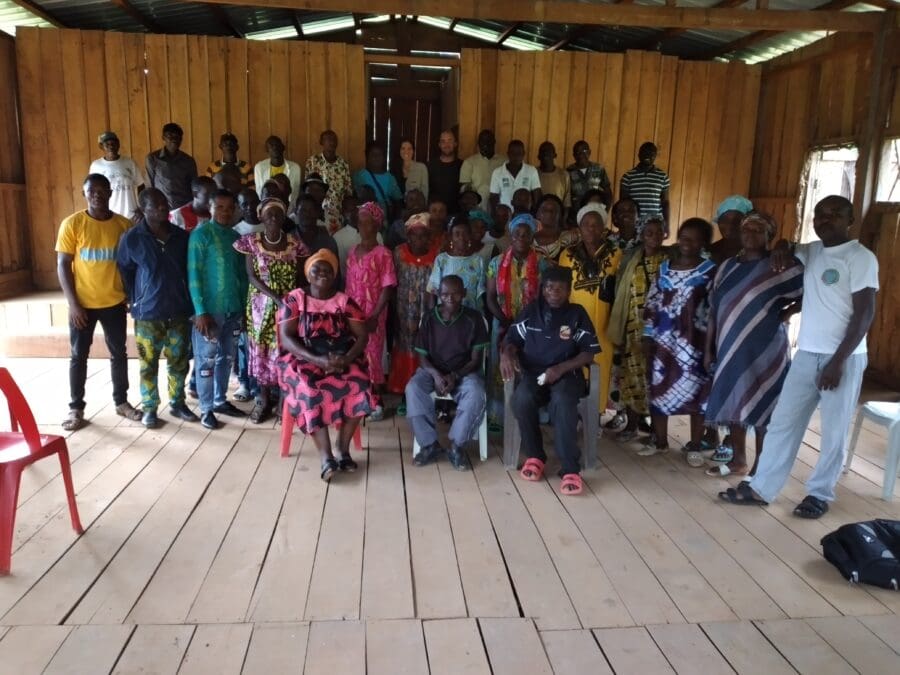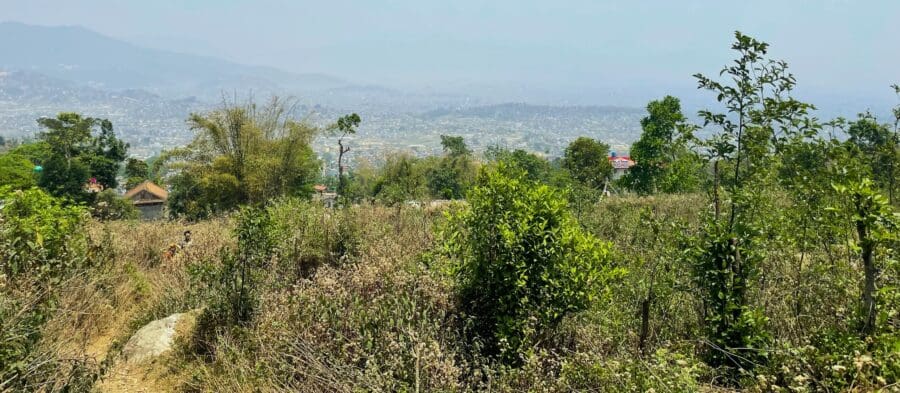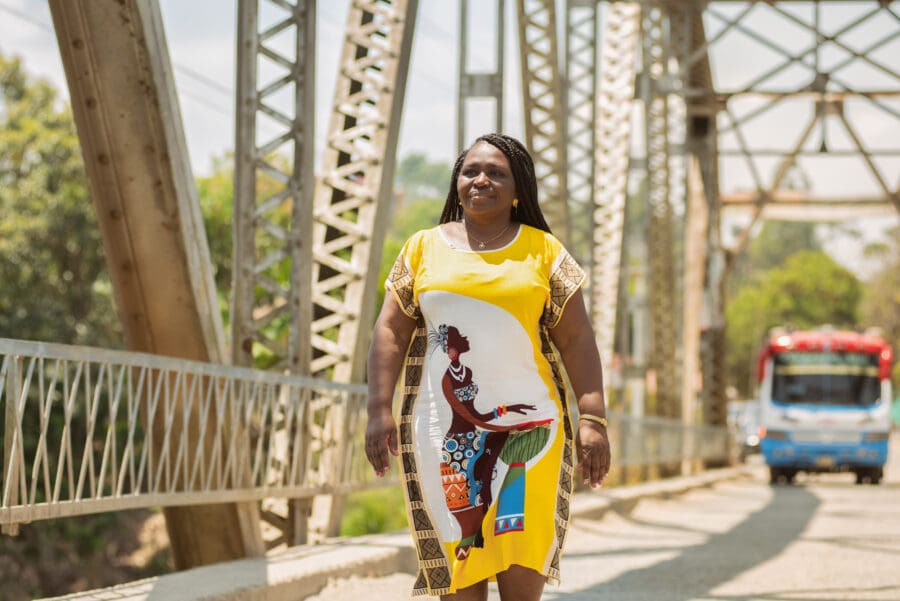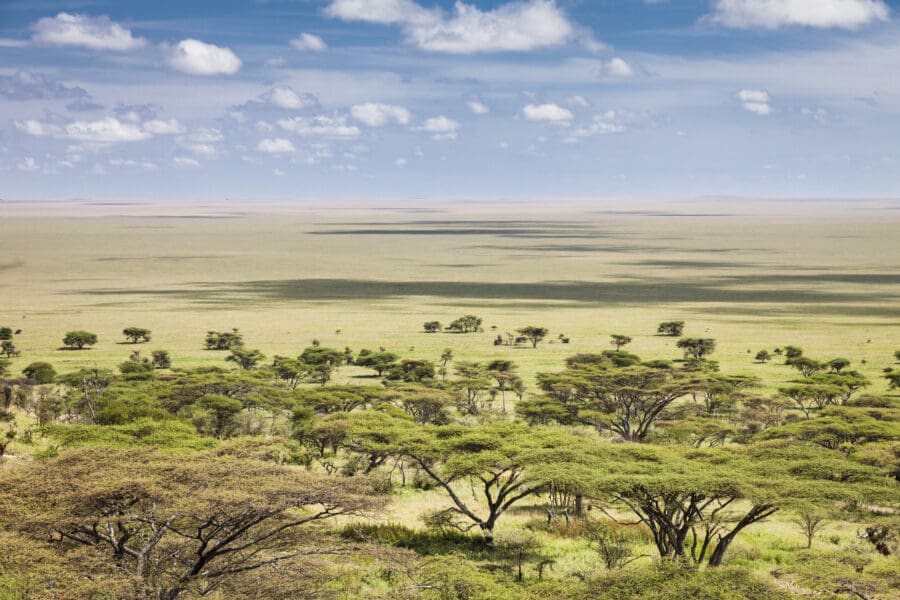Read the final declaration from the congress
Brazzaville, Republic of Congo (May 26–30, 2025)—Indigenous Peoples and local communities (IPs and LCs) from the world’s largest and most vital tropical forest basins are gathering for the First Global Congress of Indigenous Peoples and Local Communities from the Forest Basins, taking place from May 26 to 30, 2025, in Brazzaville, Republic of Congo.
Organized by the Global Alliance of Territorial Communities (GATC) and co-convened with the Rights and Resources Initiative (RRI), this historic Congress brings together forest guardians from the Amazon, Congo, Borneo-Mekong-Southeast Asia, and Mesoamerica. These territories, long safeguarded by IPs and LCs, are essential to the Earth’s biodiversity and carbon balance, providing powerful solutions to the climate crisis.
“This global conference is a historic milestone of unity for the peoples of the world’s tropical forests. We arrive as a living coalition, with the wisdom of our ancestors and the urgency to defend the rights of nature and our peoples. COP30 is just one stop; our struggle goes far beyond,” said Juan Carlos Jintiach, Executive Secretary GATC.
A pre-congress celebration of the GATC’s Women’s Movement kicked off the Congress with an interactive workshop on strengthening Indigenous and local community women’s access to direct climate finance. Hon. Rosalie Matondo, the Minister of Forest Economy for the Republic of Congo, opened the pre-Congress event. In her welcome remarks, she called the Congress an important moment for the participants to promote three pillars of sustainable development: environmental protection, economic growth, and participation of our Indigenous Peoples and local communities in the development of the world.
“I especially thank the leadership of our Indigenous and local community women who take care of our communities, territories, and families to make sure that the Earth is supported through our generations to come,” said Minister Matondo.
Despite growing global recognition of their contributions, IPs and LCs continue to face mounting threats to their rights and territories—from illegal logging and mining for critical minerals to harmful agribusiness expansion. The Congress will spotlight these realities while advancing a unified Indigenous-led strategy to ensure that their rights, livelihoods, and knowledge systems are at the center of global environmental governance, climate finance, and conservation solutions.
“It is not just a question of financing or climate justice. It is time to humanize the processes. Our territories, our cultures, our voices have been warning about the points of no return for decades. The world must listen, and communities from all forest basins must continue to lead with hope and determination toward the future,” said Joseph Itongwa, Coordinator of the Network of Indigenous and Local Communities for the Sustainable Management of Forest Ecosystems in Central Africa (REPALEAC), which is a member of GATC.
Why now?
Global forest ecosystems are at a critical tipping point. At a time when deforestation is accelerating and biodiversity is collapsing, extensive research shows that deforestation rates are significantly lower in territories managed by Indigenous Peoples and local communities. Recent geo-political setbacks, including the U.S. withdrawal from the Paris Agreement and suspension of international climate finance, have only intensified the urgency to amplify the leadership of IPs and LCs in climate and biodiversity action.
The Congress builds on major international milestones from COP26 in Glasgow to the Biodiversity COP16 in Colombia, where IPs and LCs gained unprecedented pledges for support. However, these pledges are yet to be fully translated into direct funding and strong legal protections for communities to be effective.
It also builds on momentum generated by the first-ever Forum of Indigenous and Local Community Women in Central Africa and the Congo Basin held in Brazzaville in 2023—organized by REPALEAC, GATC, RRI, and the Central African Forests Commission, which issued a roadmap to strengthen the role of Indigenous and local community women in the region’s climate resilience and conservation.
At the pre-Congress workshop on direct financing for women, CLARIFI—RRI’s funding mechanism for Indigenous and community-led projects—committed $270,000 USD to women-led initiatives across eight African countries ($30,000 each).
Deborah Sanchez, an Indigenous Moskitia from Honduras and Director of CLARIFI, said, “These grants will support Indigenous and local community women with training and technical support in sustainable soil regeneration, income generation, biodiversity restoration, advocacy for community tenure, and so much more. We start today with nine projects, but there are many more that we can support together.”
Dr. Solange Bandiaky-Badji, President and Coordinator of Rights and Resources Initiative (RRI) said: “This Congress marks the first time that IPs and LCs from all major forest basins are convening under one roof to align their strategies and influence international policy from the grassroots up. For parties at COP30, it is a moment to pay attention to as it presents a unified response from Indigenous Peoples and local communities to the climate and biodiversity crises. We also call for an increase in communities’ direct access to climate finance—not just in volume, but in structure, and for climate funding to be reimagined in partnership with them.”
A global coalition for forest justice
“Defending our Mother Earth based on our knowledge is an act of resistance. This Congress opens a path for us to engage in dialogue, influence, and strengthen the role of Indigenous and community women around the world in building fair and secure governance for our territories,” said Sara Omi Casama, an Emberá Lawyer from Panama and women’s movement representative from the GATC.
“Political leaders are finally beginning to recognize that our knowledge is scientifically grounded, and that what we have been saying for decades is true: climate change cannot be addressed as a single issue, but is rather an interconnected set of elements. This gathering is a crucial step toward making our actions visible, sharing real lessons from our territories, and building alliances that prioritize life, water, and the planet’s balance,” said Levi Sucre Romero, an Indigenous Bribri from Costa Rica and Director of the Mesoamerican Alliance of People of Forest (AMPB).
The five-day event will include high-level panels on regional forest realities; sessions on women and youth to amplify gender and generational equity in forest governance; and thematic working groups on threats, rights, livelihoods, and financing. It will also allow participants to collectively draft and agree on the Congress Declaration and an Action Plan. A high-level closing ceremony with heads of states, donors, and global partners will conclude the Congress.




